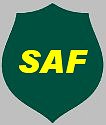| Back to |
|
|
| MSUE Resource Library | ||
| Newspaper Article Index | ||
| Forest Information Main Page | ||
| MSAF Home Page |

NEW FOREST LEGISLATION PACKAGE
Article #113, November 2006
By Bill Cook
Michigan forest owners interested in sustainable forest management on their properties may be eligible for some property tax relief. A recent forestry legislative package revised the existing Commercial Forest Program (CFP) and introduced a pair of additional opportunities.
To enroll in these programs, a forest management plan is required, along with the payment of application or processing fees. There are a number of other eligibility requirements that must also be met, depending upon the particular program. Not all forests will be eligible. There are penalties for withdrawals and violations. Procedures and forms for some of the new programs are still being developed. Administrative delays shouldn't be ruled-out considering some of the new program elements.
Forest owners interested in property tax relief need to review these programs carefully before enrolling. If timber production and forest management are not a primary ownership goal, then this legislation should not be used to simply obtain property tax relief.
The CFP (Commercial Forest Program, formerly Commercial Forest Act-CFA) has been around for a long time. Eligible properties are subject to a tax of $1.20/acre beginning in 2007. That rate increases by a nickel every five years. An owner must enroll a minimum of forty acres. Timber harvest schedules are required and must be followed. This option requires public access for hunting and fishing. Application deadline is 1 April.
Lands enrolled in the CFP and under an eligible conservation easement will pay the CFP rate minus $0.15 per acre. The easement must include the provision that the property is certified under a sustainable forestry certification program that uses third-party independent auditors and must be accepted by the Michigan DNR. Application deadline is 1 April.
The new "Qualified Forest Program" (QFP) exempts forest owners from annual local school taxes. Forest area must be from 20 acres to 320 acres in any local taxing unit and cannot be enrolled in the CFP. This option does not require public access, an important difference from the CFP. Affidavits must be filed by 31 December.
Each of these program options has more to know than what has been described in this article. For more complete information, contact the regional DNR Service Forester; Gary Willis (Baraga), Ernie Houghton (Escanaba), Rich Stevenson (Newberry), Tom Stone (Indian River), Steve Kalisz (Cadillac), or Mike Hanley (southern LP).
The
legislation enabling these programs can be found on the website http://www.legislature.mi.gov
and using the bill numbers 912, 913, 914, 917, 5454, and 5455. Also, watch for
clarifications from MSU Extension and the Michigan Forest Association. These
programs may be helpful for many people who are interested in tax relief for
their managed forest properties.
- 30 -
Trailer
Bill Cook is an MSU
Extension forester providing educational programming for the entire Upper Peninsula.
His office is located at the MSU Upper Peninsula Tree Improvement Center near
Escanaba. The Center is the headquarters for three MSU Forestry properties in
the U.P., with a combined area of about 8,000 acres. He can be reached at cookwi@msu.edu
or 906-786-1575.
Prepared
by Bill Cook, Forester/Biologist, Michigan State University Extension, 6005
J Road, Escanaba, MI 49829
906-786-1575 (voice), 906-786-9370 (fax), e-mail: cookwi@msu.edu
Use
/ reprinting
of these articles is encouraged. Please notify Bill Cook.
By-line should read "Bill Cook, MSU Extension" Please use the article
trailer whenever possible.
Michigan State University is an affirmative action equal opportunity institution. The U.S. Department of Agriculture prohibits discrimination on the basis of race, color, national origin, gender, religion, age, disability, political beliefs, sexual orientation, and marital status or family status. (Not all prohibited bases apply to all programs.)

This website is maintained by Bill Cook, Michigan State University Extension
Forest in the Upper Peninsula. Comments, questions,
and suggestions are gratefully accepted.
Last
update of this page was
8 November, 2006
This site is hosted by School of Forest Resources and Environmental Science at Michigan Technological University.